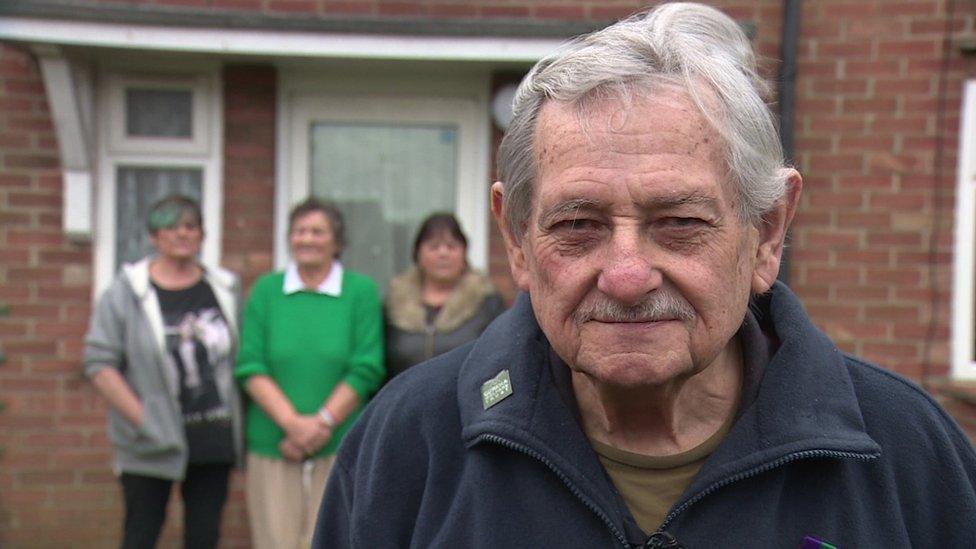Nuclear test veteran from Ipswich among first to receive medal
- Published
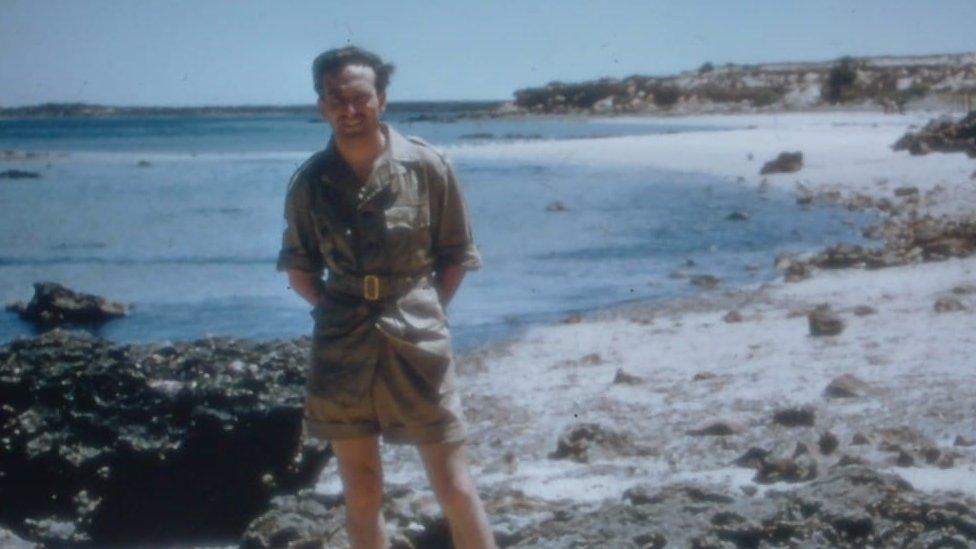
Bob Last served with the Royal Electrical and Mechanical Engineers
A 92-year-old veteran who watched nuclear weapons being tested in the 1950s has become one of the first to receive a new military medal.
Bob Last, of Ipswich, Suffolk, was a newlywed in his 20s when he was sent to south-west Australia with the Royal Electrical and Mechanical Engineers.
Their contribution was recognised by the government after a long campaign.
When the medals were announced, the Prime Minister said they would be a symbol of "our country's gratitude".
Mr Last's daughter, Sandie Catlin, said the Nuclear Test Medal had been a "long time coming".
It came after years of campaigning to gain recognition and restitution for the thousands of personnel exposed to nuclear radiation and their families.
Cover faces with hands
Ms Catlin and her sister Debbie Last said their father, who has dementia, had started to speak about his experiences in the Australian outback in recent years.
"I think they were told not to talk about it; and that generation, if they told not to talk about something, they didn't," said Ms Last.
"He said they would see explosions go off, and they would cover their faces with their hands and they could see the bones in their hands."
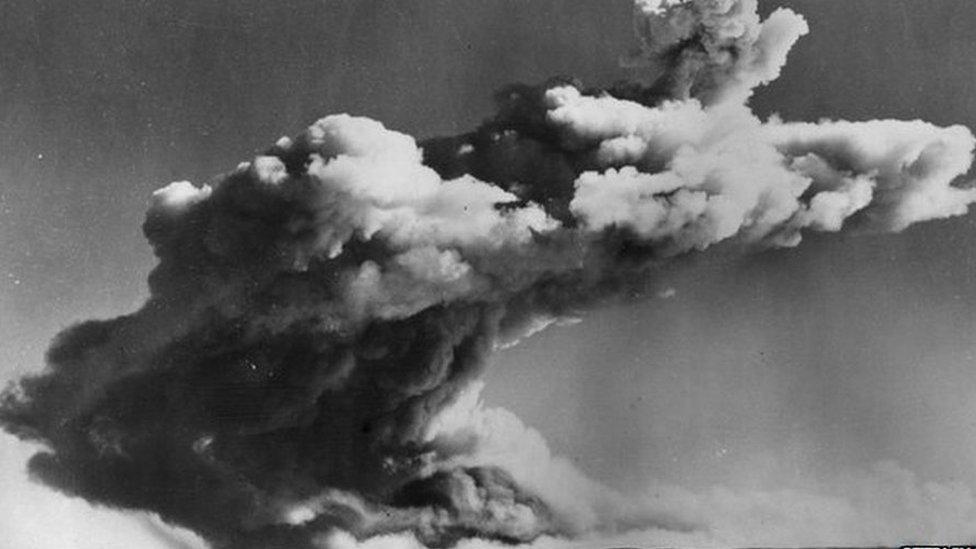
A cloud hangs over Australia's Monte Bello Islands after Britain tested its first atomic bomb
Seven atomic bombs were dropped in Maralinga, where Mr Last was based, in October 1957.
Mr Last returned from Australia in 1958 and was then stationed in Germany with his wife Doreen, with the first of their two children born that October.
He left the forces in 1978 and worked in other jobs including banking before his retirement at 65.
'Nobody knew anything'
For years, veterans and their families have campaigned for recognition, saying the radiation they were exposed to caused ill health and premature deaths, as well as health problems in their families.
However the Ministry of Defence has maintained that three large studies of nuclear test veterans "found no valid evidence to link participation in these tests to ill health".
Ms Last said her father had been "relatively healthy" but added "you just don't know" about the implications for him and his daughters, who have both experienced poor health.
"Nobody knew anything," added Ms Catlin.
"It wasn't until people started speaking about it with the BNTVA [charity for atomic veterans] and Children of the Atomic Bomb [a US physician's account of the impact of nuclear weapons, published in 1995] that we really started to think about health problems.
"They [the tests] were just so far apart and they [veterans] were cut off; they really didn't know anybody else involved."
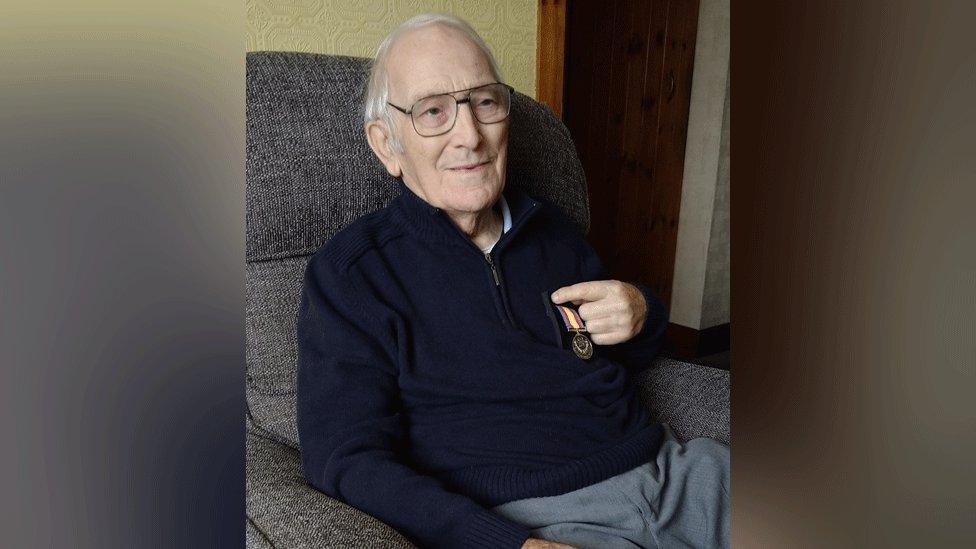
Bob Last is among thousands of veterans or veterans' families who are entitled to the Nuclear Test Medal
Asked if their father appreciated the medal and its significance, Ms Catlin said: "I am sure he does.
"With dementia, people do go back in time."
Ms Last said her father had looked over the medal after the package arrived at his home, but he had not said a great deal.
"My dad couldn't have gone to a ceremony but for it to arrive in the post did take the shine off it."
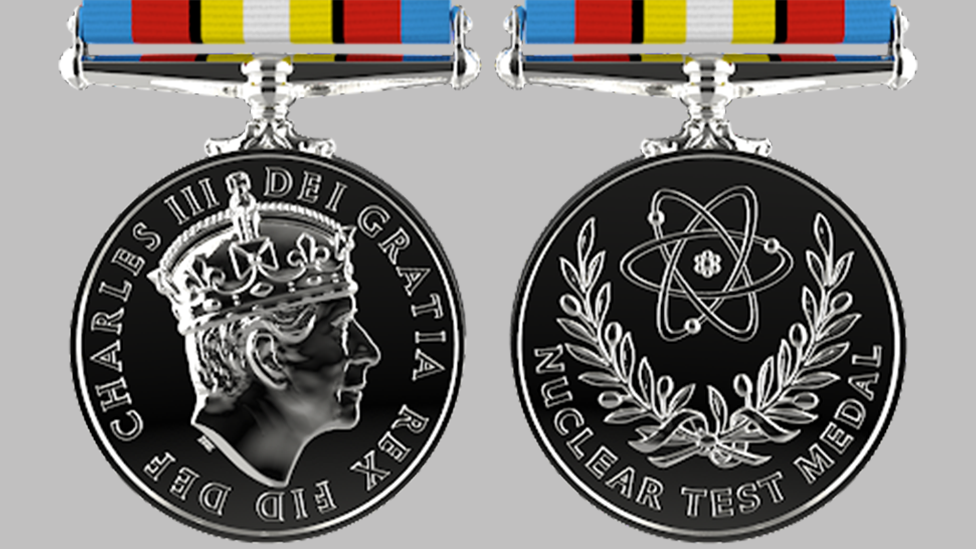
The medal features an atom surrounded by olive branches
She said the recognition was not the end of the matter.
"The government has not backed the nuclear test veterans," she said.
The government had previously refused calls for official recognition, saying that participation in the tests fell "outside the criteria for medallic recognition".
However when Rishi Sunak announced the medals earlier this year, he said it was "only right their [veterans'] contribution to our safety, freedom and way of life is appropriately recognised".
The BNTVA believes more than 22,000 British servicemen participated in the British and US nuclear tests and clean-ups between 1952 and 1965, along with scientists from the Atomic Weapons Research Establishment and civilians.
Ms Last said: "We need to find the medical records of the veterans. It doesn't stop here."

Follow BBC East Midlands on Facebook, external, Twitter, external, or Instagram, external. Send your story ideas to eastmidsnews@bbc.co.uk, external.
Related topics
- Published22 September 2023
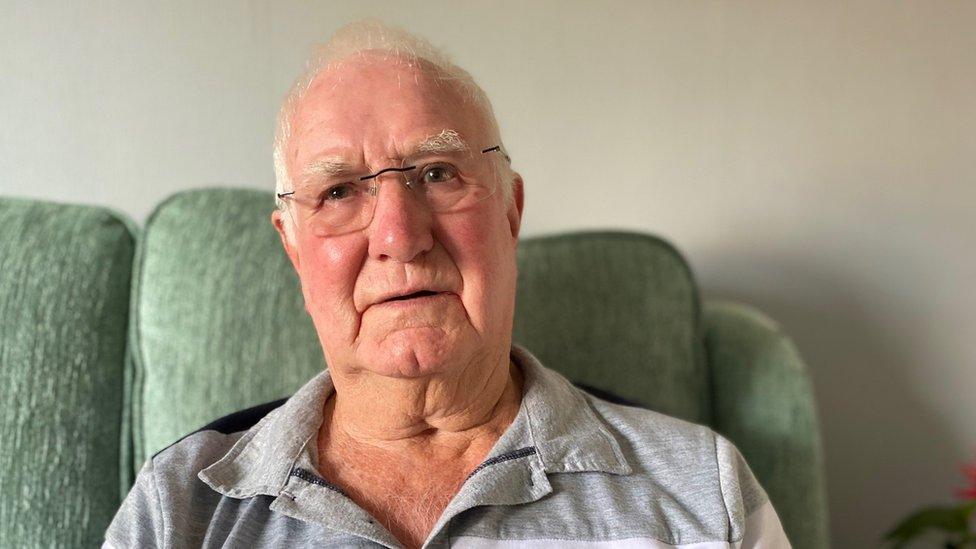
- Published21 November 2022
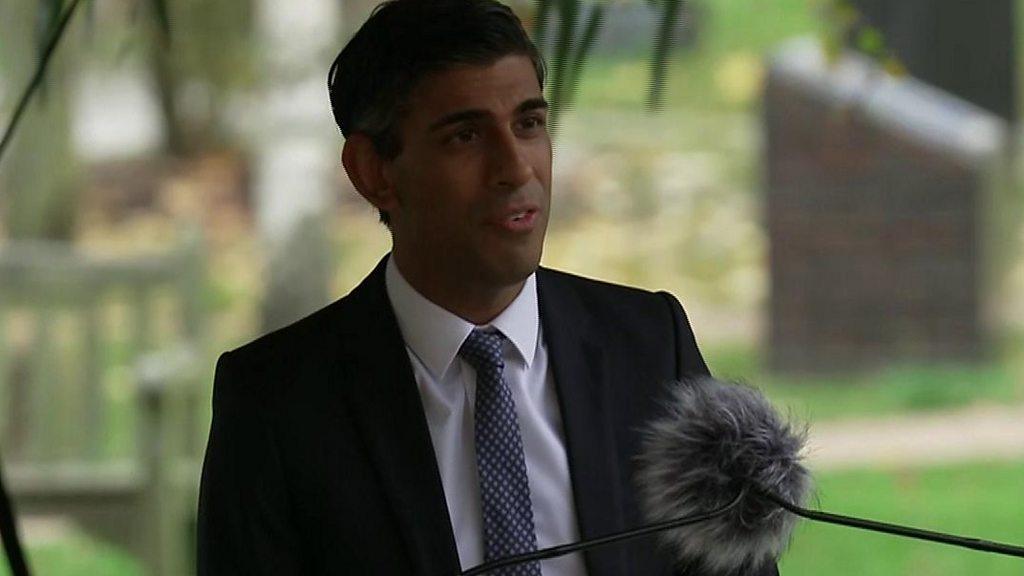
- Published30 May 2021
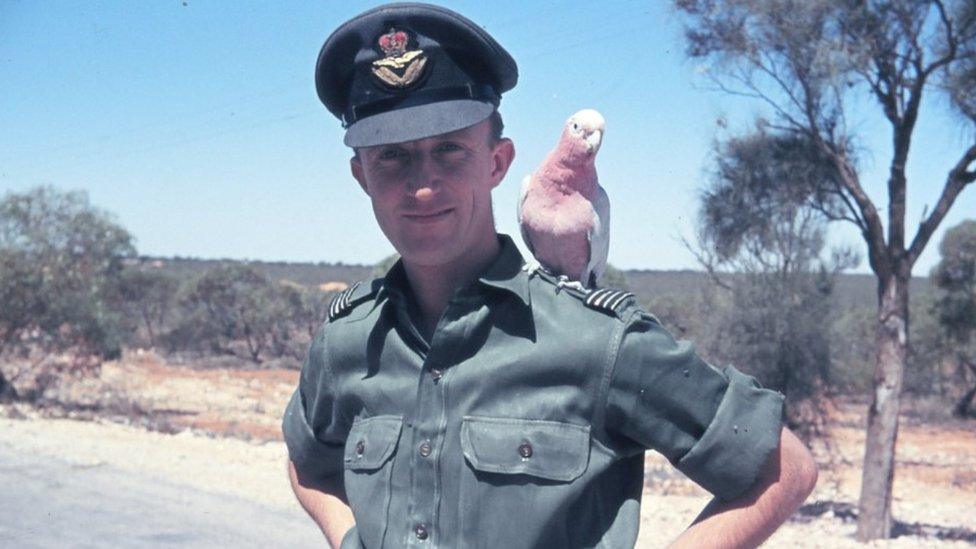
- Published28 July 2023
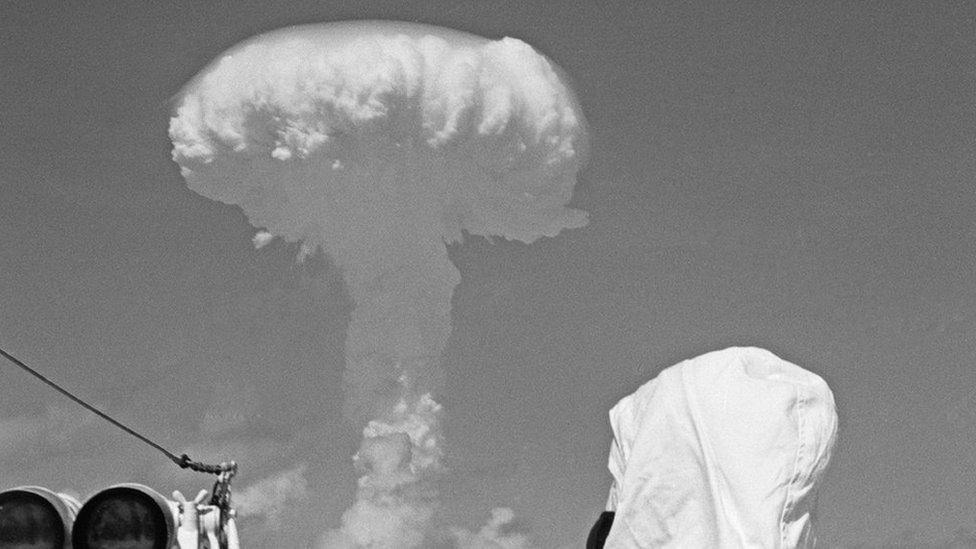
- Published31 December 2014
- Published16 February 2018
